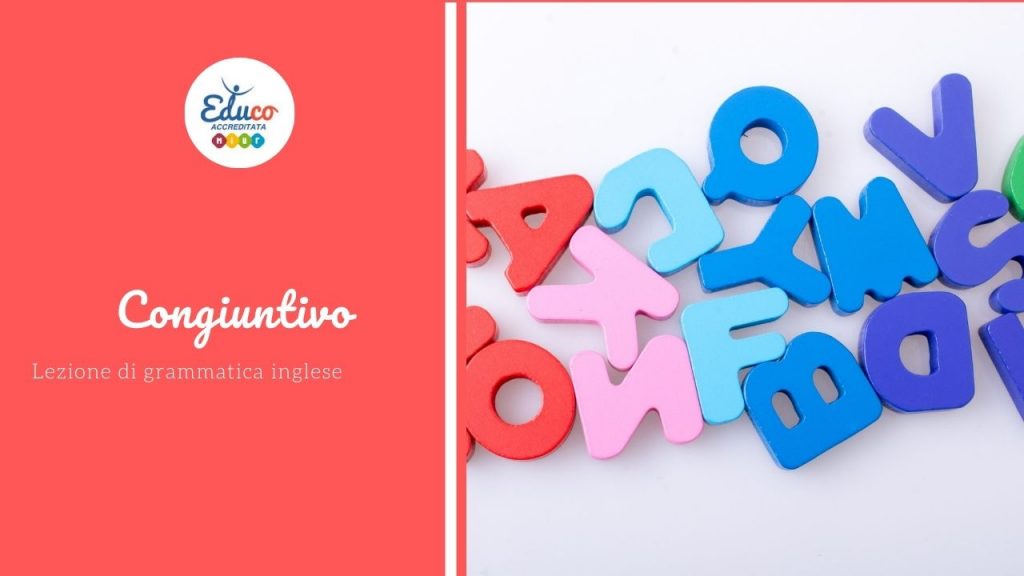Contrariamente alla forma italiana, in quella inglese il congiuntivo non si distingue. In realtà durante il parlato sta quasi cadendo in disuso (meno per la forma scritta) nonostante si tratti di un verbo abbastanza semplice.
Scopriamone di più in questo articolo.
Leggi anche:
- Present Simple
- Forma Passiva inglese
- Verbo futuro nella lingua inglese
- Modal Verbs – verbi modali
- Adverbs of time
- Phrasal verbs
- Definite and Indefinite Articles
- Past continuous
- Demonstrative adjectives
- Possessive Pronouns
- Prepositions of place
- Adverbs of frequency
- Present Continuous
- Comparativi e superlativi
Il congiuntivo: Le regole grammaticali
Il congiuntivo nella lingua inglese si forma in questo modo:
forma base del verbo,ovvero l’infinito senza il to
Esempio:
Carl insisted that Chloe not be at the bar
Il congiuntivo in realtà ha poche regole verbali, poiche’ si possono formare solo le forme del presente semplice (indicativo presente) e del presente e passato del verbo essere.
A differenza degli altri verbi, sia nel tempo presente indicativo che al presente e passato del verbo essere, il congiuntivo alla terza persona singolare non introduce la s:
I see
you see
he, she, it see
we see
you see
they see
Verbo (essere) to be
Present
I be
You be
He,she, it be
We be
You be
They be
Past
I were
You were
He,she, it were
We were
You were
They were
Esempi:
presente inglese
It is important that you learn to speak english
imperfetto inglese ( io fossi)
If I were you, I would accept.
Se fossi in te, accetterei.
in contesti non formali, were può essere sostituito da was: I wish I were a girl
Magari fossi una ragazza.
Le altre forme verbali
Forma passiva del congiuntivo inglese
Joseph recommended that Chloe be ready to leave tomorrow
Forma progressiva del congiuntivo inglese
it’s important that you be working every morning
in inglese il congiuntivo si usa per enfatizzare urgenza o importanza
I would prefer that she talk to Jospeh tomorrow morning
In alternativa, si usa con la stessa caratteristica sopo i seguenti verbi all’infinito (to):
advise (that)
ask (that)
command (that)
demand (that)
desire (that)
insist (that)
propose (that)
recommend (that)
request (that)
suggest (that)
urge (that)
prefer(that)
suggest(that)
Dopo prefer e suggest in genere si usa il presente e non l’imperfetto
Con should nell’imperfetto : dopo i verbi suggest, recommend ed insist
I recommended that he should have a rest today
Con il verbo wish con significato di magari:
I wish you were here
Infine con espressioni quali :
if need be (se ci fosse bisogno)
as it were (per cosi’ dire)
if only (magari)
Scopri i progetti didattici in lingua inglese nelle scuole
Educo anche per l‘a.s 2021-2022 propone i progetti didattici rivolti agli studenti della scuola primaria e secondaria di I° grado da svolgere a scuola.
Scopri le nostre proposte!
Educo Theatre and Workshops






